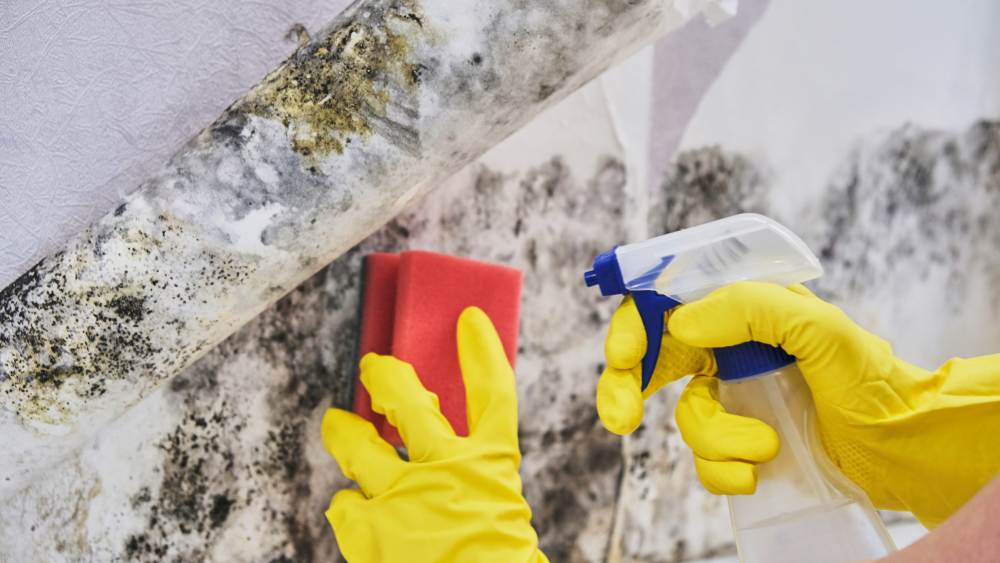No one enjoys experiencing allergies and their symptoms, and there are some cases where certain areas of your home or property tend to trigger allergies more often than others. One common such location in certain situations is the basement -- but there are also some very simple ways to ensure that your basement does not become a harbor for allergens or other contaminants that you don't want around.
At Creative Construction Solutions, we're happy to provide numerous basement remodeling and basement finishing services to clients in Saratoga Springs and other parts of Utah, and we'll cover every possible need you may have here -- including anyone in the home with allergies who needs to be certain the basement space is allergen-free. Let's look at some of the signs that your basement could be harboring allergens, plus some simple ways to identify them and get rid of them for good.
Possible Signs of Allergens in Your Basement
Firstly, how can you tell that your basement is harboring allergens and triggering allergy symptoms? Here are some signs:
- Allergy symptoms only present in the basement: If you've begun to notice that you experience allergy symptoms specifically in the basement, it's possible that harmful allergens are present there. This is especially true if no one in the home is experiencing allergy symptoms anywhere except the basement, or if there's a clear gap in symptom frequency and severity between the basement and other rooms.
- Mildew smell: Mildew gives off a specific smell, and if you notice this in your basement it could be a sign that there are allergens like mildew present.
- Dampness or water damage: Typically, dampness or signs of water damage can also be an indicator of mold growth, which is another major allergen for many people. If these are present in your basement, they could be triggering your allergy symptoms.
- Basement mold: Mold is especially problematic for many people, and if you suspect that you might have mold present in your basement it's important to take steps to identify the type of mold and get rid of it as soon as possible.
Dangerous Allergens -- Mold and Asbestos
While no allergen in your basement is desirable, certain specific types of allergens to be on the lookout for are mold and asbestos.
- Mold: Mold is a very common allergen, especially in basements which are often moist or prone to mildew growth. Mold can have a significant effect on your health if you spend significant time in your basement, so it's important to be able to detect it and remove it as soon as possible. A good way to test for mold is by placing a piece of bread in the area for 24-48 hours, then checking to see if it's started to grow any mold spores -- which will be detectable by a fuzziness on the surface, color change, or other visible signs. In other cases, you may spot visible signs of mold growth either on surfaces or in the air.
- Asbestos: Asbestos is a dangerous insulation material sometimes found in older homes, and it can also be used in many other building materials as well. If you have concerns that your basement could contain asbestos, it's important to consult with an expert who can take samples for testing and offer specialized assistance. This is especially true if your home was built before 1980, which makes it much more likely that asbestos tiles may have been used in floors, walls or ceilings.
If you believe either of these allergens could be present in your basement, it's important to work with a professional who will help you remove these potentially harmful contaminants.
Other General Allergy Prevention Tips for the Basement
Now, while mold and asbestos are certainly some of the most dangerous allergens you may find in the basement, they are far from the only ones. Others like dust, pet dander, pollen and more can also be problematic. To help prevent these allergens from affecting your health, here are some general tips to follow:
- Proper basement ventilation: A major cause of allergens in the basement is excess humidity and dampness, so make sure that you have sufficient ventilation to allow air to circulate freely. For instance, in the case of mold growth, it's important to either increase ventilation or simply turn on a fan to blow air out and away from your basement.
- Basement cleaning: Regularly clean the basement with products that are designed to remove allergens like dust and pet dander, both on surfaces and in the air. This will help improve moisture levels and greatly improve the quality of air you're breathing.
- Air purification equipment: For those with severe allergies, or if you're just not seeing relief from your allergy symptoms, you may want to consider adding an air purification system or other equipment specifically designed to remove allergens from the air for a healthier living environment. A UV air purifier, for instance, can help kill mold spores before they enter your breathing space, and other devices may also be able to catch airborne allergens like pollen and dust.
- Waterproofing the basement: Because dampness is one of the biggest causes of allergens and other air quality issues, it's important to waterproof your basement in many cases -- which can include fully sealing any cracks or gaps in the foundation that may allow moisture to seep through. That will not only help prevent mold growth and improve overall air quality, but it can also help protect your home's structural integrity as well.
For more on how to prevent allergies from becoming an issue in your basement, or to learn about any of our basement contractor services in Saratoga Springs or nearby areas, speak to our team at Creative Construction Solutions today.



